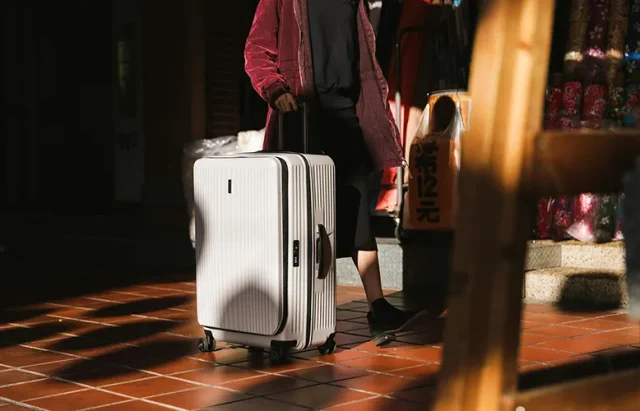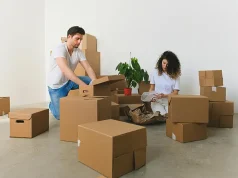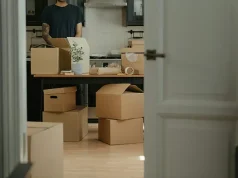
Taking a vacation should be a time of relaxation and enjoyment, but it also requires careful planning to ensure your home stays safe while you’re away. A break from the usual hustle and bustle is ideal, but leaving your home unprotected can make it vulnerable to break-ins and other security threats. Fortunately, with some thoughtful preparations, you can secure your home and have peace of mind during your trip. Here are some practical steps to ensure your home remains safe and secure while you’re away on vacation.
1. Notify Trusted Neighbors and Friends
One of the first things you should do before heading out is to inform a trusted neighbor, friend, or family member about your vacation plans. Let them know the dates you’ll be away, and give them permission to check on your property occasionally. A familiar face can notice anything unusual, such as suspicious activity or unexpected deliveries, and can even help by collecting your mail or packages. This simple act can prevent potential burglars from assuming your home is empty for too long.
2. Use Smart Technology to Monitor Your Home
Smart technology can be a valuable tool when securing your home while on vacation. Consider installing a security camera system with remote monitoring features. Many modern security systems allow you to view live footage of your property from anywhere using a smartphone app. This gives you the ability to check in at any time and receive alerts if there’s any suspicious movement. Additionally, a video doorbell can help you see and interact with visitors or delivery personnel remotely, giving the impression that someone is home.
3. Set Up Timers for Lights and Electronics
One of the telltale signs that a house is unoccupied is the absence of lights and electronics. To avoid making your home an easy target, use timers for lights, televisions, or radios to create the illusion that someone is at home. Timers can be set to turn on and off at different times throughout the day and night, mimicking your usual routine. For a more sophisticated approach, you can integrate smart lighting systems that can be controlled remotely, allowing you to turn lights on and off as you wish. Consider exploring home automation Melbourne to help create a system that ensures your home is secure and functions seamlessly while you’re away.
4. Secure Entry Points
The most obvious security threat comes from easily accessible entry points, so ensuring that all doors and windows are properly secured is crucial. Before leaving, double-check that all windows and doors are locked, and don’t forget about secondary entrances like back doors, side windows, or garage doors. For added protection, consider installing deadbolts on doors and placing window locks on ground-level windows. You might also want to install security bars or reinforce entry points with steel or iron grilles to make forced entry more difficult.
5. Keep Valuables Out of Sight
To make your home less attractive to burglars, avoid leaving valuables visible from outside. Close curtains and blinds or use opaque window film to prevent anyone from peeking inside. Store expensive electronics, jewelry, and other valuables in a safe or hidden place. For added security, consider renting a safety deposit box or a storage unit for highly valuable items that are not needed while you’re away. Taking these extra precautions can make it harder for burglars to spot easy targets.
6. Cancel Mail and Deliveries
A buildup of mail or packages on your doorstep is a clear indicator that nobody is home. Before leaving, arrange for your mail to be held by the post office, or have a neighbor collect it for you. The same goes for newspaper deliveries—pause or cancel any subscriptions until your return. If you’re expecting packages during your absence, make sure they are sent to a neighbor’s house or a secure pick-up location. This will eliminate any signs of vacancy and reduce the risk of attracting unwanted attention.
7. Consider Hiring a House-Sitting Service
If you want an added layer of protection, consider hiring a professional house-sitting service. A house sitter can take care of your home, plants, pets, and mail while you’re away. Having someone stay at your home not only keeps it in good condition but also provides a presence that deters burglars. If a house-sitting service isn’t within your budget, consider asking a friend or family member to stay at your place temporarily while you’re gone.
8. Install Motion Sensor Lights
Motion sensor lights are an effective and cost-efficient way to deter criminals from approaching your home. Installing these lights around entryways, driveways, and dark corners of your property makes it more difficult for burglars to approach undetected. If the motion sensors detect movement, the lights will automatically turn on, alerting both you and your neighbors to any activity. Bright lights are often enough to scare off intruders and make them reconsider targeting your home.
9. Avoid Announcing Your Vacation on Social Media
While it’s tempting to share your vacation excitement on social media, doing so can leave your home vulnerable to burglars. Posting real-time updates or photos about your vacation can signal to criminals that your home is empty. Avoid broadcasting your plans publicly and consider postponing your vacation posts until you’ve returned. If you must share with close friends and family, do so privately to avoid unwanted attention.
10. Double-Check Your Insurance Coverage
Before you leave, review your homeowner’s insurance policy to ensure it covers any potential break-ins, theft, or damages. If necessary, update your coverage to reflect the value of your property and possessions. Knowing that you’re financially protected can give you an added sense of security while you’re away. Keep in mind that some policies may require you to inform them of extended absences, so be sure to check the terms of your insurance policy in advance.
Conclusion
Planning a vacation is a thrilling experience, but ensuring that your home remains safe and secure during your absence is just as important. By following these steps, such as notifying neighbors, utilizing smart technology, securing entry points, and using timers for lights, you can ensure that your home is well-protected. Additionally, simple actions like canceling mail, keeping valuables out of sight, and avoiding social media posts about your trip can go a long way in preventing unwanted attention. With these security measures in place, you can enjoy your vacation knowing your home is in good hands.





